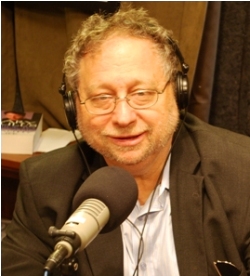The Battleground called Media |
There was more news of course but much of it stuck, like a needle on a record, in the A's (Airplane attacks, Anthrax and Afghanistan), never reaching the rest of the alphabet, except for a few O's (Osama, Omar).
At year's end, The New York Times devoted a major story to ‘Headlines From The Cutting Room Floor’ referring to "key stories that were overlooked, that might have played out differently had the world's gaze not been fixed on terrorism." (The Times, of course, helps fix the gaze.)
As it turns out, there were former senators and other experts, including an ex-soldier-turned-security chief at an investment bank based in the Twin Towers, who warned that a terrorist attack was imminent. The President was actually given a top-secret report to the same effect but it too was ignored. We would later be told that the ‘dots’ were not connected.
In the months that have passed, millions of words have commented on the ‘bubble’ that America lived in before its sense of invulnerability was punctured in such a deadly and dramatic fashion.
We have since heard the reports about signals that were overlooked and warnings ignored at the highest, and I mean the highest levels of the Administration. We know for sure that there is so much more to be revealed, even when we dismiss the many conspiracy theories that swirl around our body politic like malarial mosquitoes feeding on the national unease.
Looking back, I wondered why I expected the media response to be any different. After all, to assess the performance of the news media on ‘the day’, we need to be reminded of what it was and wasn't doing before the attack, in the period leading up to it, and, in fact, during the years before. A July-August 2002 American Journalism Review (AJR) survey of journalists in the hinterlands of America found editors quite candid about the deficiencies of their own coverage after a decade of closing foreign bureaus and limiting global reporting in what is supposed to be an age of globalization.
Edward Seaton of the Manhattan (Kansas) Mercury wrote: "The duty of newspapers is to keep readers from being surprised by major developments." The media review concludes, "By that measure, almost every American paper failed its readers." (emphasis mine).
So alongside the failures of the wars – and there are more than two underway – it’s high time to discuss the failures of the media and ponder what best we can do about it.








 News Director Danny Schechter is an author, blogger and filmmaker. He edits Mediachannel.org, a global media issues network and directs films. His latest Plunder: The Crime of Our Time treats the financial crisis as a crime story. He can reached at
News Director Danny Schechter is an author, blogger and filmmaker. He edits Mediachannel.org, a global media issues network and directs films. His latest Plunder: The Crime of Our Time treats the financial crisis as a crime story. He can reached at 
Post new comment